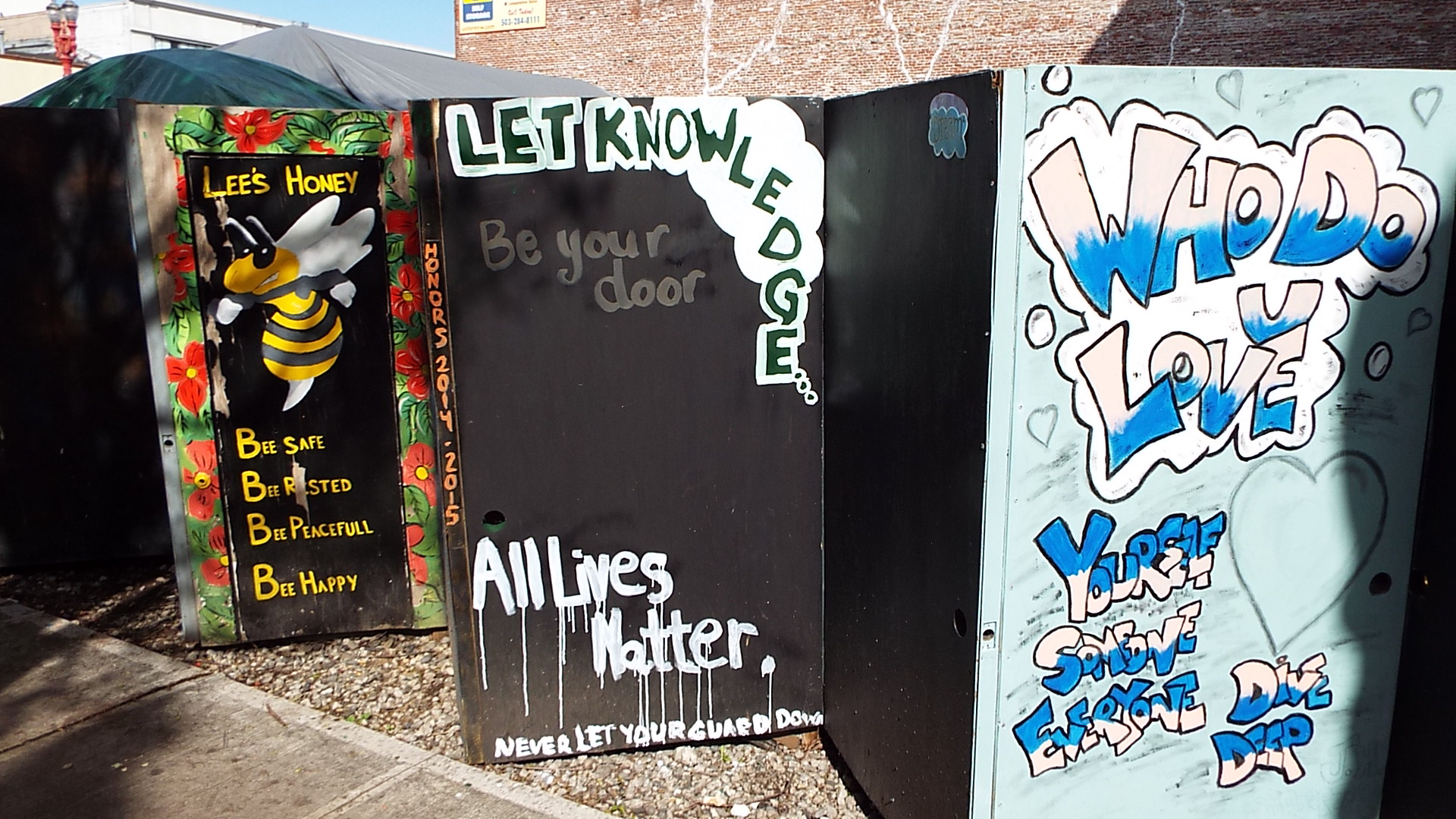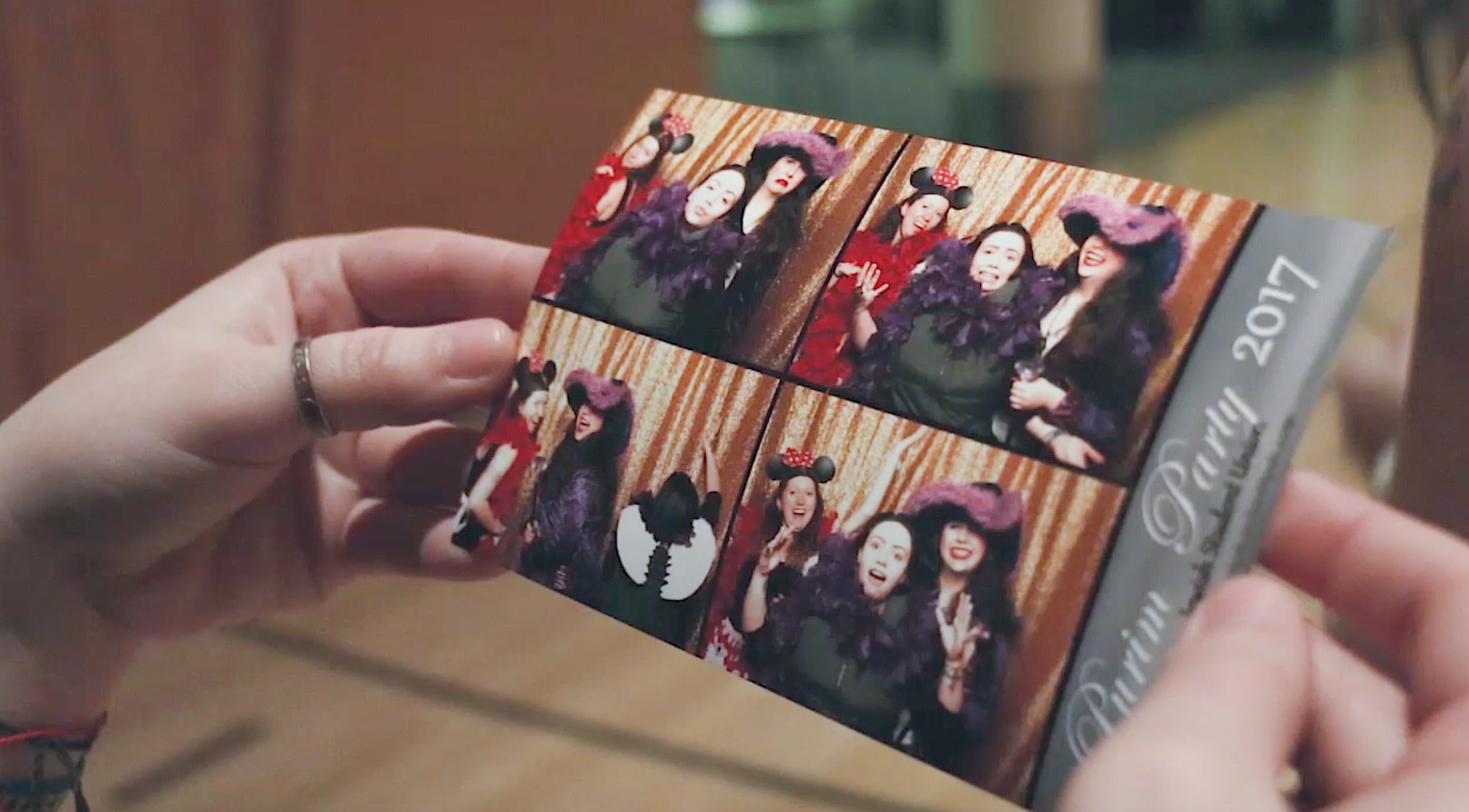Behind a row of unobtrusive, painted doors in downtown Portland is an organization dedicated to providing the homeless with one of the most elemental human rights: the right to sleep. Right 2 Dream Too, or R2DToo, is a nonprofit organization offering 12 hours of uninterrupted sleep off of the streets to those who need it.
Perhaps the most distinct aspect of R2DToo’s location is its line of vividly painted doors bordering the site. When a donation of at least $100 is made to R2DToo, the donors are given a door to paint, lending to the artistic diversity. Aside from the practical benefits of a perimeter, the doors are symbolic as well.
“[It’s] because of the sayings ‘When one door opens, another one closes,’ or ‘Doors are opportunity,’” explained Ibrahaim Mubarak, cofounder of R2DToo and Right 2 Survive, an organization that advocates for people affected by poverty. “And this is your opportunity to get rest, get fed, do some community building, and then decide how you’re going to be productive and get back into the mainstream of life.”
R2DToo’s purpose has made an impact on several students in the Portland State community. Dr. Kaia Sand, a professor in the Honors College at PSU, has implemented awareness of R2DToo in her sophomore Urban Humanities lectures. Her class hosted two of the founders of R2DToo, Leo Rhodes and Mubarak, and visited the physical location.
Moved by R2DToo’s purpose, several students organized a donation to purchase a door. They painted it to represent PSU.
“I’m really proud of this class,” Sand said. “On my end, what I can do in the classroom is bring in materials, open up a space for conversation, and then figure out when to get out of the way, and I didn’t expect all of this to happen.”
“Visiting [R2DToo] was an incredible experience,” said PSU student Lauren Hurrie, who was directly involved with the donation and painting of the door. “We got to meet so many people, and they simply needed a peaceful, uninterrupted area to sleep.
“We heard about a few individuals who held jobs, which is a much more difficult experience when you don’t have a place to call home and get the sleep you need,” Hurne continued. “Homelessness is a growing problem in various communities, but I really admire how individuals are able to overcome such a huge obstacle. [R2DToo] is providing a vital human necessity, and I’m extremely glad that our class was able to come together and help them out.”
Often, one of the challenges facing homeless individuals is finding a comfortable—and legal—place to sleep. Termed as a ‘rest area,’ R2DToo is a solution run entirely by the local homeless community. It consists of a men’s tent, a women’s tent and several couples tents. The site also offers restrooms, a kitchen and a computer lab. Guests are provided with a sleeping bag, a tent and basic toiletries.
Mubarak said inspiration for the rest area stemmed from the unlikely source of the Portland Rose Festival.
“People are able to pitch a tent up on the sidewalk to watch the Rose Festival,” he said. “We noticed how they were taking the homeless people’s tents and makeshift shelters and criminalizing them by taking them to jail, taking all their belongings, making them do community service by cleaning up the sidewalks and stuff. And so we said, ‘Why is it legal for people to do it for pleasure, and not a way of survival or living?’”
The following year, the future founders of R2DToo sectioned off several sidewalk blocks during the Rose Festival and invited the houseless people to sleep for the night.
“The next day, the houseless people let us know that that was a good night’s rest,” Mubarak said. They were not harassed or bothered; they slept good for a long time. So now with what we do, we continue to do that.”
R2DToo continues to make an impact not only in this community, but also in multiple communities across the country including Eugene, Tucson, Denver and San Jose.
“Our next step is to incorporate the model because now cities in different states are coming here to look at our model, wanting to know more about it,” Mubarak said. “We want to establish where the houseless community themselves can be able to establish a village or community where they can learn to take care of themselves.”






